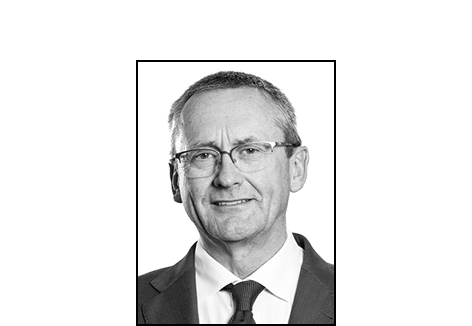speech AOG conference opening session: driving opportunity, generating confidence through LNG

Kory Judd
Director of Operations
Chevron Australia
Wednesday 11 March 2020
AOG Conference Opening Session - Driving Opportunity, Generating Confidence through LNG
Western Australia has built a world-class LNG industry and world-class LNG infrastructure.
Just 10 years ago, Australia had only six operating LNG trains - today there are 21 LNG trains and Chevron is involved in 10 of those.
Its an everchanging world. In 2005, natural gas prices were $19.26 and today they rest slightly under $2.00.
We see coronavirus, markets in some turmoil and the industry and others working to adjust to a very competitive landscape and we will have to continue to do so.
At the base of society and at the base of progressing all cultures is energy. Energy such as LNG is going to be critical to solving the world’s problems.
Competitiveness is key. Australian gas must remain internationally competitive and establish itself as an ever-increasing low-cost producer.
Australia’s future success requires the low-cost development of resources and leveraging what differentiates Australia from other places in the world:
- Collaboration is going to be key to Australia establishing itself.
- Partnerships, as demonstrated at conferences such as AOG.
- Technology – there is a huge data lake that exists here. Data that is available to understand how to further economise and optimise the commodities that we have here.
- Most importantly, the skills and knowledge transfer that will benefit those Australians that work in our great industry.
Let me give you some examples where this is being put into action:
- Standardisation across our business and industry. As is evident here at the AOG Conference, industry is coming together. We’re publishing forward work plans, we’re talking about ways that workers, contractors and others can interface with us in more simple ways. We don’t need five or six solutions or standards, but just one standard.
- That takes coordinating on work such as our turnaround schedules;
- Our partnership with industry and government on the LNG Jobs Taskforce - forward work plans; standardising local content reporting and an aligned skills framework for operators.
There is an increasing social expectation and moral obligation that we lower our carbon footprint. Natural gas as it exists today, in its form today will not be enough. We will have to do more to strive for lower carbon standards for the future.
One example of how we are deploying technologies to continue to reduce our carbon footprint is the Gorgon carbon dioxide (CO2) injection project which is now fully operational.
Three trains which will capture up to 4 million tonnes of CO2 per year - equivalent to more than a million electric vehicles put onto the road.
Over the life of the asset there will be over 100 million tonnes that will be injected into this carbon capture facility.
We are also going to have to unlock the data that exists.
We’re going to have to find the hidden treasures and secrets that exist in that data so we can become more economic, more efficient, more optimised and more focused on the markets that we’re going to supply.
We are using data science to maximise production and minimise downtime on our rotating equipment. Data is gathered, brought to central locations and analysed continually and we’re able to see things that enable us to remain reliable and continue to produce LNG.
Investing in our people is going to be another critical action we need to take as a nation.
At Chevron, we have more than 130 Australians on global assignments that are gaining knowledge and bringing their own expertise. They will come back and contribute to local businesses and the local economy.
These cross-culture experiences provide diverse ways of working, thinking and doing, along with exposure to different technologies, markets and business best practices.
We currently have 20 Australian-based people working directly with the main FEED contractor on our subsea compression project, in Norway. This knowledge and technology transfer returns to Australia, continuing to develop our local capability.
As we work to develop the energy that improves lives and powers the world forward, we need to collaborate; form stronger partnerships; take technology and data and use it to our advantage; and advance the skills and knowledge of the workers who will continue to help our industries to be profitable.
In doing so, we will continue to innovate and create solutions that will bring energy to the world.
When I think about Australia’s ‘fair dinkum’ approach, we’ll do it with integrity, competitiveness and we’ll establish ourselves as the world’s leading provider of LNG.
Thank you.